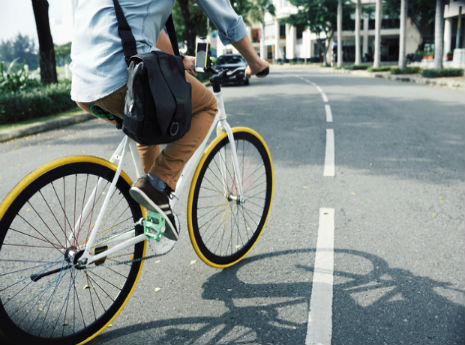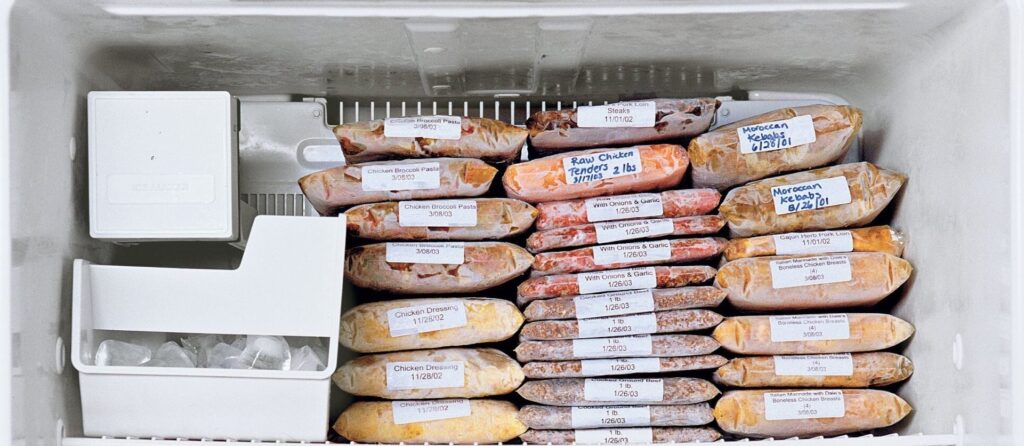This story was originally published in the 2021 Northridge Review. Pictures have been added to keep your attention.
$ $ $
Compound Interest
I was waiting for my lunch order and finished my usual screen routine—check texts, emails, comments, likes, feed updates, stock prices—when I decided enough was enough and pocketed my phone. Surely my attention span could handle a few screenless minutes until my Pad Woon Sen and spring rolls were ready. I looked around, taking in the restaurant with fresh eyes. The drawn curtains and golden lighting. The massage parlor muzak. The exotic fish tank. I felt a sudden superiority to the other patrons hunched over their phones, oblivious to the soothing decor.
Across from me, two kids stood on chairs and dropped coins into the fish tank. The fish darted away from the descending pennies, nickels, and dimes. The woman beside them sat with her back to the kids. She didn’t seem to care that her children were bombing the angelfish with loose change. She’d probably given them the coins.
I pulled out my phone and swiped the news app until fresh articles appeared. I scoffed at the clickbait titles like How To Retire On The Price Of A Cup Of Coffee that showed the image of a coffee cup with a green dollar sign. Then I clicked on it. The article was written by a thirty-six-year-old who’d retired on his modest computer engineering salary simply by cutting out frivolous expenses like his four-dollars-a-day Starbucks habit. I was not a big fan of my job, but working was an unavoidable part of life. Unless you wanted to spend the rest of your days living in a van eating rice and beans. But the article didn’t mention deprivation. Only happy mantras like escape the consumer trap and prioritize your freedom and flourish in a happier, healthier life.
The hostess called my name, and I stuffed my phone away. I signed the receipt for the eighteen-dollar lunch, plus tip, and headed out. The kids had run out of coins and were now pounding the fish tank and licking the glass.

I wasn’t irresponsible with money. Plenty of my friends spent more than me. I had leased the same car for years even though it didn’t have self-parking. Still, I was intrigued by this coffee math. I spent the rest of the day tabbing between work spreadsheets and articles on early retirement. The more I read about “Financial Independence Retire Early” the more excited I got. This F.I.R.E. movement was happening all over the country, right under the noses of spend-happy muggles who blindly handed over their hard-earned paychecks in exchange for car payments, TV subscriptions, and sushi. It was simple math, the financial bloggers wrote. It just takes discipline.
I stayed after work when everyone else had gone home, thinking about what luxuries I could live without. Brew my own coffee? Months of work gone. Cancel the gym membership I never use? Bam! Years gone. Cut our cable? Freedom is just around the corner.
I drove home, nodding my head to a budgeting podcast as if it were a Beatles song.
Avoid debt, yeah, yeah, yeah.
Spend less than you earn, yeah, yeah, yeah.
Invest the difference, yeah, yeah, yeah, YEAAHHH!
The man who pulled into my driveway was a different person. The circuitry in my brain had been rewired to this new world of frugality. My life would never be the same.
Marina was more skeptical.

“You’re biking to work? Isn’t that dangerous?”
“It’s nine miles to my office, and it takes me almost an hour to get there. Think of the time I’ll save in addition to the money. Plus, it’s healthier. It’s a win-win-win.”
“You don’t even have a bike.”
“I’ll buy one. And a helmet too.”
“I thought this is all about saving money?”
“It’s an investment. Plus, I’ll have plenty of cash after I sell my car.”
“You’re selling your car.”
“Come on, hon. I need you on board the F.I.R.E. train. Don’t you want out of the rat race? If we stick to this plan, we can retire in twenty years and never have to work again. It’s simple math!”
Marina exhaled and looked over the chart I’d printed. If we managed a savings rate of twenty-five percent (factoring in our current income minus what we both owed on our cars and student loans) we could retire in sixteen years! (Assuming an eight percent annual return on investment.) I planned on saving more than twenty-five percent and retiring even sooner, but I didn’t want to scare Marina. They say one of the biggest hurdles to financial independence is a reluctant spouse.
Marina frowned. “No more coffee?”
“Don’t think of this as deprivation, but optimization. It’s about aligning our spending with our priorities so we’re not wasting our money on things that aren’t important.” I flipped over the chart and handed her a pen. “So let’s figure out what really matters. Make a list of the top ten things that make you happy.”
“What about you?”
“I already made my list.”
Marina sighed and drew a “1” at the top of the paper. Our previous money talk had been about wedding planning, and those negotiations had ended with tears, overpriced invitations, an iPod DJ, and an hour’s worth of shaky-cam footage courtesy of her nephew. We’d avoided talking about money ever since. But as Marina’s happy list grew, a change came over her. Her eyes lit up, and I saw my frugal vision burrowing into her brain. I imagined what a life without work would be like. When we had the freedom (my #1) to sleep in and enjoy the day. To play guitar (my #7). To cook meals together (my #5).
Marina set down her pen, a smile forming on the edges of her mouth.
“Okay,” I said. “What do you got?”
She read the list. Number one in all uppercase: FAMILY. I nodded, thinking about where family had fallen on my list and deciding not to mention the oversight.
She finished reading her list and set down her sheet.
“We have a lot of overlap,” I said. “That’s good.”
“I’m not excited about budgeting,” she said, straightening the edge of her paper. “But if it helps us afford a family, then I’ll do it.”
“That’s my girl.”
We celebrated our new plan with “frugal bowls” (brown rice, black beans, and salsa) I’d made up for the occasion. Marina rated it Not as bad as I’d feared. We had leftovers for three days.

It’s not that I didn’t want a family. I enjoy wrestling with my nephews on the living room floor after Thanksgiving dinner, getting them in scissor locks and tickling them until one of them wets himself. But I can’t wrestle all day. And with your own kids, you can’t bail before they can explain to mom why their pants are wet.
Marina and I planned on having kids one day, we just weren’t at that stage yet. Besides, our personal situation made the process complicated. (Complicated = expensive.) We’d get around to children once we were financially stable. Once we could afford a bigger apartment and club basketball and cello lessons.

With Marina now on board, we tackled the budget as a team. I printed out our monthly credit card statement and, armed with a highlighter, figured out which monthly expenses we could cut out. There were a few no-brainers: packing a lunch instead of eating out, cutting cable and switching to a streaming service, buying one of those prepaid phone plans drug dealers use. The changes were easier than we imagined, and the difference started to show in our net worth. It was as if we’d patched the leak in our space ship and we were no longer running out of oxygen. Together we set a course to planet Freedom.
And the benefits were more than financial. I lost ten pounds by not eating out and biking to work. Sure, my coworkers gave me dirty looks for staggering into work late with pit stains and helmet hair. So I buzzed my head. (One thirty-dollar set of electric hair clippers = never pay for a haircut again!) Plus, my B.O. kept my boss Dennis away from my cubicle. Another win for frugality!
Marina had a harder time adjusting to our new lifestyle. While I was ready to sell our TV and start making my own laundry detergent, she still had her splurges. An Amazon package would arrive, and I’d have to take out her happy list and our budget (which I referred to as the Freedom Plan) and get her back on the wagon. After some tears, she’d eventually relent and return the new coat or boots. And I was patient. I didn’t remind her that winter gear wasn’t necessary in Santa Monica. Or that if I could brave getting creamed semi-trucks every day, she could make do with the shoes she had. Instead, I’d rub her shoulders and say, “Remember what we’re saving for.” Or, “What do you think of the name Remi?”
“I like Remi,” she’d say, boxing up the boots. “For a girl.”

Six months into our new lifestyle, we’d saved thirty-eight thousand dollars which was growing in low fee, broad market index funds. I couldn’t help but think how much faster we could retire if we saved sixty percent of our take-home pay. Or seventy-five! We could be out of the rat race in seven years and never have to work again. Wasn’t that worth a little sacrifice?
I started evaluating everything in terms of how much time it set us back from Financial Independence. Every Taco Tuesday with friends was another day of work. Worse if you factored in opportunity cost. If invested, that money would have shaved off four days of work. Nearly a week of my life thrown away so that I could sip warm margaritas and listen to Dan complain about his kid’s potty training.
Tickets to Idaho for holidays with the in-laws were another few weeks of work. Christmas presents for our horde of nieces and nephews, a month. On the flip side, each time I changed the oil in Marina’s car myself or prepared my own taxes, our freedom drew closer.
Such is the power of compound interest!

In month eight, I brought up the idea of moving.
$ $ $
“It’s called Geographic Arbitrage. California is not ideal for the F.I.R.E. lifestyle.”
“But we love it here. All our friends are here.”
“Our friends have not been very supportive.”
“That’s because we never see them anymore. Jen and Rosa stopped inviting me to brunch because I kept making excuses. We don’t do anything fun anymore.”
“Which is why it doesn’t make sense to stay in Southern California. Do you know how much we can save on rent in Kalamazoo?”
“Where?”
“Idaho, even. We’d be close to your parents. Family is your number one, after all.”
“But what would we do for work?”
“We’ll find something. Heck, if we lived with your parents, we probably wouldn’t even have to work.”
“I’m thirty-three. I’m not moving in with my parents.”
“Just a thought. Just a thought.”
“What about baby stuff? How long until we can start the process?”
I frowned and did the calculations in my head. “We’re moving in the right direction. We can probably start looking into it soon. Agencies and surrogates are expensive, but if we stick to the budget…”
“We need to do it sooner than later. Success rates drop after thirty-five.”
I took her hand in mine. “We’ll get there, hon. We just have to stick to the plan. Keep saving. I promise it’ll be worth it in the end.”
My index finger fondled the diamond engagement ring that had set our freedom back two years and ten months.

Tests, procedures, legal fees, hospital fees, surrogate payments and stipends—and the costs don’t stop there. That’s just to get to even with everyone else. Then it’s diapers, formula (sorry, no free breast milk here!), baby food, overpriced stroller, even more overpriced jogging stroller, crib, bed, clothes, toys, sports, braces, prom, college, and on and on. The price tag on a child is astronomical. Is it really worth the expense?
I’m not selfish. I just enjoy my freedom. I like peace and quiet and a full night’s sleep. With a kid, you’re paying for the privilege of diapers and tantrums for the next twenty-plus years. I don’t mean to sound heartless, but if I were being objective, a baby would fall at the top of the liability column.
“Aren’t you afraid of missing out on life?” Marina asked the night it finally came to a boil. “Aren’t you going to regret not having a family if I die and you’re spending Christmas all alone?”
I pointed out that I wouldn’t be “spending” anything.
Then she cried.

The sun settled behind the blue mountains. I stomped my boots on the mat and carried the bucket of apples into our tiny home. The house tipped under my weight. But that’s a small price to pay for one hundred and twenty square feet of sleek cost-cutting efficiency. I had the place custom made for under thirty-five thousand dollars. It sits on a wild three-acre patch of land in Spirit Lake, Idaho. It’s ours, free and clear. And so are our lives.
I set the bucket of apples below the counter that serves as our kitchen/home office. I cleared away the onion husks after a long day of meal prepping. Sixty frugal bowls now filled every inch of our two freezers. Our dinners for the next month. But that night, I also had a special treat planned for Marina. Baked cinnamon apples to celebrate reaching our goal. For after the day’s stock market jump, our net worth had passed twenty-five times our living expenses. We were officially F.I.
I rinsed the apples and sliced them into wedges. The cores I threw in the empty bucket with the onion skins to take out to the compost pile. I smiled as I worked. Though I’d spent the day in the kitchen preparing the sixty frugal bowls, it felt good to do something special for Marina. To show her all our sacrifices had been worth it.
As I waited for the pressure to build in the Instant Pot, I ran a hand through my beard and thought back to the beginning of our journey. I thought of the man who used to spend twenty dollars on one lunch. Who would drive a car he couldn’t afford to a job he hated so that he could buy stuff he didn’t need.
Just because we’d reached F.I. didn’t mean we were done making money. I’m writing this blog not only to share our story with those who want to join The Frugalist’s Path to Freedom, but as a retirement side hustle that will help pay for extra expenses. Like building a real chicken coop so the little shits stop escaping through the netting of the salvaged trampoline. Plus, Marina keeps talking about buying an actual washing machine, though where she intends to put it I have no idea.
I was clearing off the counter when I noticed Marina’s purse. I didn’t mean to snoop, but there was literally no room to hide anything from each other in the tiny house. When I saw what was inside, it was as if I’d been stabbed in the groin. I couldn’t believe my eyes. But the evidence was right there, hidden in a zippered compartment of her purse along with stamps and a dollar eighty-six in coins. A lottery ticket.
My intention was not to start a fight. I wasn’t “ambushing” her like she claimed or conducting some “sick intervention.” I merely wanted to have an open communication about the betrayal. That’s why I taped the lottery ticket to the fridge with a note that said, WE NEED TO TALK!
But when Marina came in from weeding the garden and saw the note, she exploded. “You act like I committed adultery!” She slammed her dirty gloves down in the nook/music room, shaking the house.
I sat on the couch/guest bedroom, arms folded. “You may as well have.”
“It was a two-dollar lottery ticket.”
“The money isn’t the point. You snuck behind my back and broke our covenant.”
“Like you don’t buy stuff? How about the two hundred and fifty dollars you spent on your SodaStream experiment? The CO2 tank is still sitting outside!”
“That’s an investment. We’ll be able to make our own sparkling water as soon as I figure out how to put it together.”
“Well, maybe my lottery ticket is an investment too.”
“Don’t say that, Marina. You know the math.”
“I don’t care about the math. I want to dream for a couple of hours on my way home to this…outhouse in the woods!” She shook her fists and the tiny house shook with them. “What was the point of all this? We have apple trees and homemade dresses and…frickin chickens, but we don’t have a family!”
“We’ve talked about this. You know the costs of bringing a child into the world with our situation. And there’s no guarantee it’ll even work.”
“I—don’t—care. I—want—a baby!”
“I’m sorry, but it doesn’t make financial sense. Not to mention the environmental footprint. Adding another human to this planet is frankly irresponsible.”
Marina lowered her hands. When she spoke, it was in a soft voice that was somehow worse than yelling. “You promised when we started this, that all the sacrifices would be worth it when we had a baby.”
“I’m sorry. I love my life. I don’t want to do anything that would change it.”
She stood in the kitchen/office, staring as if she couldn’t recognize me.
“I cut my own hair for you. I eat rice and beans every night, and for what?”
I took her bare, calloused hands and took a deep breath. The smell of cinnamon filled our tiny home. “Marina. I don’t want to fight, but I need you to tell me the truth. Is this the first lottery ticket you’ve bought?”
Marina grabbed her coat and stormed out. The door slammed so hard a picture fell off our dresser/bookcase/nightstand. I came outside to the car tearing down the dirt drive and the chickens rolling around on the trampoline, clucking their heads off.
My first thought wasn’t about losing her. It wasn’t whether she was gone for good this time, or if I would spend my retirement alone in the backwoods of Idaho. My first thought was about the month’s worth of frugal bowls sitting in the freezers. Now two months’ worth.

